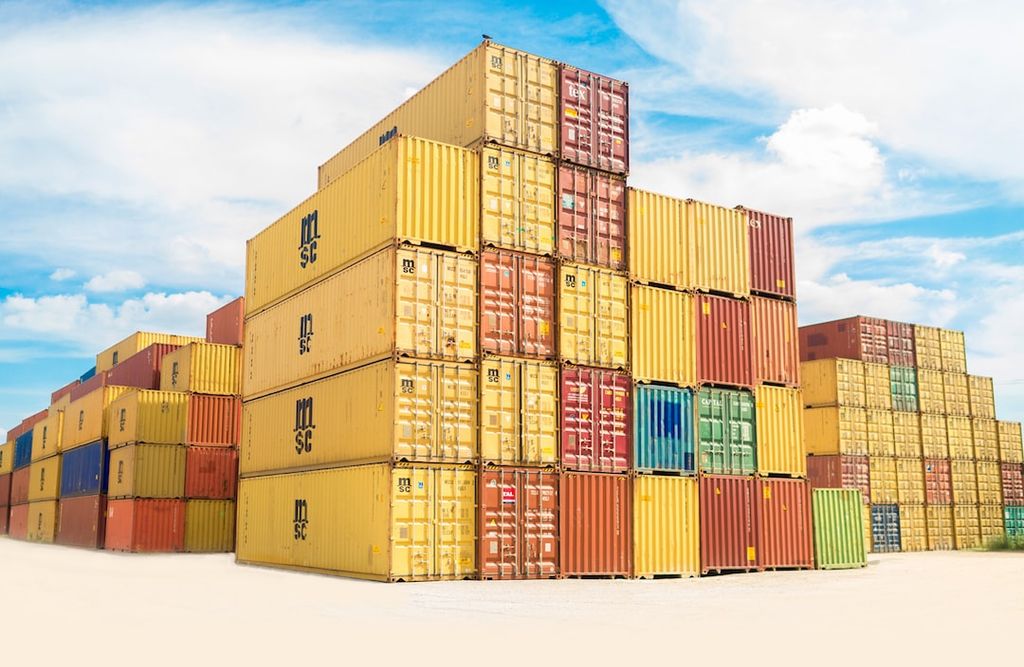Debt accumulation is a significant challenge faced by third-party logistics providers in today’s economic landscape. As these providers strive to meet the demands of their clients while managing their own financial obligations, it is crucial for them to adopt effective strategies for debt management. In this article, we will explore the debt landscape for third-party logistics providers and discuss key strategies that can help alleviate their debt burden.
Key Takeaways
- Economic factors greatly impact the accumulation of debt for third-party logistics providers.
- Third-party logistics providers face various challenges in managing their debt.
- Negotiating favorable payment terms with clients can help improve debt management for logistics providers.
- Implementing cost-reduction measures is crucial for alleviating the debt burden in the logistics industry.
- Effective debt management strategies are essential for the long-term success of third-party logistics providers.
Understanding the Debt Landscape for Third-Party Logistics Providers
The Impact of Economic Factors on Debt Accumulation
Understanding the impact of economic factors on debt accumulation is crucial for third-party logistics providers. It allows them to navigate the challenges and make informed decisions to manage their debt effectively.
Challenges Faced by Third-Party Logistics Providers in Managing Debt
Managing debt in the logistics industry can be a daunting task. With the complexities of the business and the constant pressure to meet financial obligations, third-party logistics providers often face challenges in effectively managing their debt. It is crucial for these providers to find strategies that can help alleviate their debt burden and ensure financial stability. Here are some key challenges faced by third-party logistics providers in managing debt:
Strategies for Debt Management in the Logistics Industry
Negotiating Favorable Payment Terms with Clients
When negotiating payment terms with clients, it is important for third-party logistics providers to consider various factors that can impact their debt management. By understanding the specific needs and requirements of each client, DCI’s commitment to providing tailored solutions can help alleviate the burden of debt. Here are some key points to keep in mind:
Implementing Cost-Reduction Measures to Alleviate Debt Burden
Implementing cost-reduction measures is crucial for third-party logistics providers to alleviate their debt burden. By carefully analyzing their expenses and identifying areas for improvement, companies can take proactive steps to reduce costs and improve their financial situation. Some effective cost-reduction measures include:
Debt management is a crucial aspect for businesses in the logistics industry. With the ever-increasing costs and financial challenges, it is essential to have effective strategies in place to manage debt and ensure smooth operations. At No Recovery No Fee Debt Collections, we understand the unique challenges faced by logistics companies when it comes to debt collection. Our team of experts specializes in providing debt collection solutions made simple. Whether you need assistance with invoice disputes, late payments, or unpaid debts, we have the expertise to help you recover what is rightfully yours. With our proven track record and customer-centric approach, we are committed to delivering results. Contact us today to learn more about our debt collection services and how we can help your logistics business thrive.
Frequently Asked Questions
1. How does economic factors impact debt accumulation for third-party logistics providers?
Economic factors such as market conditions, interest rates, and customer demand can influence the level of debt accumulation for third-party logistics providers. During economic downturns, there may be a decrease in business activity and demand for logistics services, leading to reduced revenue and increased difficulty in managing debt.
2. What are the challenges faced by third-party logistics providers in managing debt?
Third-party logistics providers often face challenges such as fluctuating cash flow, high operating costs, and intense competition. These factors can make it difficult to meet debt obligations and maintain financial stability.
3. How can third-party logistics providers negotiate favorable payment terms with clients?
To negotiate favorable payment terms with clients, third-party logistics providers can offer incentives such as early payment discounts, flexible payment schedules, or installment options. Building strong relationships with clients and demonstrating reliable service can also help in negotiating favorable payment terms.
4. What cost-reduction measures can third-party logistics providers implement to alleviate debt burden?
Third-party logistics providers can implement cost-reduction measures such as optimizing route planning to minimize fuel costs, implementing technology solutions to improve operational efficiency, and negotiating better rates with suppliers. Streamlining processes and reducing unnecessary expenses can help alleviate the debt burden.
5. How can third-party logistics providers manage cash flow effectively?
To manage cash flow effectively, third-party logistics providers can implement strategies such as closely monitoring accounts receivable and payable, maintaining a cash reserve for emergencies, and implementing efficient invoicing and collection processes. It is also important to regularly review and adjust pricing and payment terms to ensure profitability and steady cash flow.
6. What steps can third-party logistics providers take to improve financial stability?
Third-party logistics providers can improve financial stability by diversifying their client base, expanding service offerings, and investing in technology to improve operational efficiency. It is also important to maintain a strong credit rating, manage debt responsibly, and regularly assess and adjust financial strategies to adapt to market conditions.





